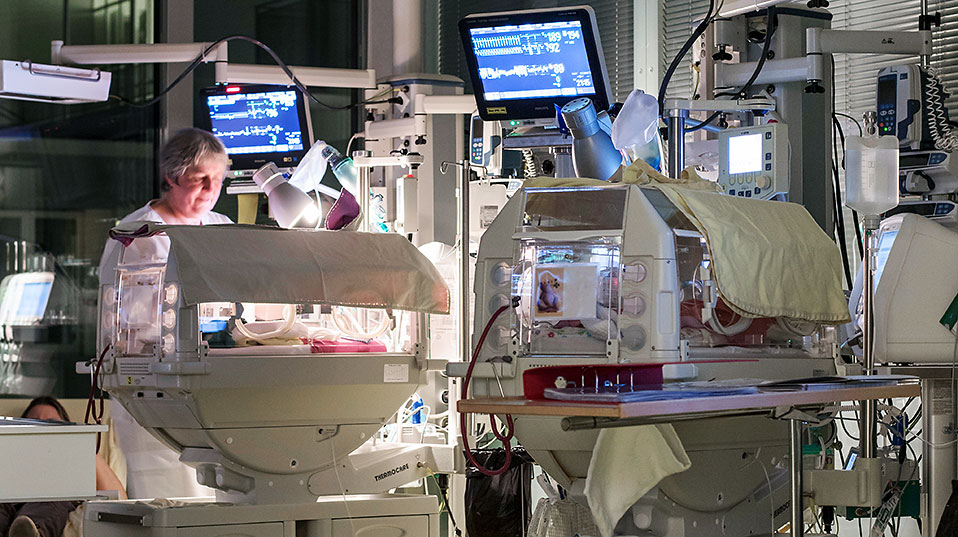Premature babies have trouble sleeping – a problem that can continue later in life
Text: Christoph Dieffenbacher
Psychologists at the University of Basel are currently conducting a longitudinal study to investigate whether the sleep of people born prematurely differs in later life from that of their peers.
About 180 test subjects in the Basel area are participating in the study, about half of whom were born before the 32nd week of pregnancy and half were full-term babies. The study is being conducted in cooperation with the Center for Affective, Stress and Sleep Disorders (ZASS) of the Psychiatric Clinics of the University of Basel (UPK) and the Department of Neuropediatrics and Developmental Medicine of the University Children’s Hospital Basel (UKBB).
Results of the first wave of the study, conducted when the participants were aged between 6 and 10, show that the children who were born prematurely wake up more frequently at night and sleep less deeply on the whole. This could be associated with sleep apnea – short pauses in breathing at night, which are more common in those born prematurely. Another well-known fact is that children born prematurely are also more likely to exhibit attention deficits and emotional problems, which is attributed to the stress of the premature birth, as the psychologist Professor Sakari Lemola tells us.
Interestingly, hyperactivity or disruptive behavior at school do not occur more often among children who were born prematurely, which can lead to their problems being overlooked by teachers. Professor Lemola calls for more attention to be paid to good sleep quality for children and adolescents who were born prematurely.
The study is currently in its third wave with the same children, who have in the meantime entered adolescence and are aged between 11 and 15. The issue for the researchers now is to clarify whether the tendency for children born prematurely to have difficulty sleeping also continues at this age – the very stage in life when many young people experience a dramatic change in their sleep behavior anyway.

